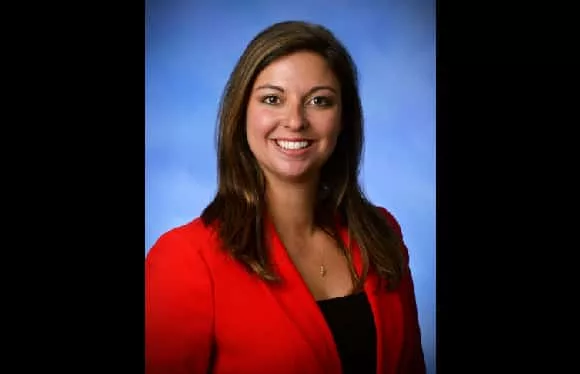Arguing that it is not the first time that Governor Whitmer has tried to bypass the legislature through use of the veto pen, Watervliet State Representative Pauline Wendzel voted this afternoon with her colleagues to override the governor’s veto of emergency COVID funds. However, despite supporting that very same funding with overwhelming bipartisan support in an initial vote, House Democrats flipped their votes, “Failing,” as Wendzel puts it, “to support hardworking Michiganders,” causing the override to fail.
Wendzel points out, “This isn’t the first time Governor Whitmer has tried to bypass the legislature by using her veto pen,” noting, “Last term, she cut close to $1 billion from autism services, secondary road patrols, opioid clinics, veteran services, and road funding. Today, she cut over $1.4 billion in federal funding to clean up messes her departments created. The people of Michigan aren’t responsible for these mistakes or for the hardships they’ve caused, our governor is.”
Wendzel says, “After paying out over a billion dollars in fraudulent claims and paying hush money to a former director who failed to help Michiganders when they needed it most, Governor Whitmer vetoed $150 million to stabilize the UIA Trust Fund.”
Some additional vetoes include:
- $840 million in Federal Title 1 funding to schools;
- $405 million for business property and unemployment tax relief and bar and restaurant fee relief;
- $86.8 million for nonpublic schools;
- $10 million for a summer school grant program.
State Rep Wendzel says, “Tomorrow marks one year since Michigan’s first case of COVID-19,” and adds, “Instead of asking Michiganders to turn on their porch lights to mark the occasion, the governor and House Democrats could have supported this critical funding to help the people of our state. It’s past time to end one-person rule, re-open our state, and get this money into the hands of those who need it most.” She concludes, “I remain focused on helping the people I serve. I wish the governor and House Democrats would stop playing partisan politics and focus on serving the people of Michigan.”
Sharing Wendzel’s emotions, one of the state’s leading small business advocates, the National Federation of Independent Business (NFIB), voiced disappointment with the governor’s line item veto of business property tax and fee relief in supplemental budget bill HB 4047. However, the small business advocate was not surprised, as State Director Charlie Owens says, “Any amount of relief to small business is important, but the bigger issue is the crippling damage caused by the extended closure and restriction orders from the Michigan Department of Health and Human Services (MDHHS).” He adds, “That is why it is important that any negotiation with the governor includes the limitations on these orders found in Senate Bill 1.”
SB 1, sponsored by Senator Lana Theis, would limit MDHHS’ ability to issue emergency orders for more than 28 days without legislative approval. The bill is intended to be tied to some of the federal funding in HB 4047 and could see final passage in the House this week.
The governor has indicated that negotiations with the legislature will continue but she will accept no limitations on her power as governor.
Wendzel took time out to note that funding for property tax relief, unemployment tax relief, liquor license fees, and bar and restaurant fees included in the veto override were not tied to any limitations on Governor Whitmer’s emergency powers.






